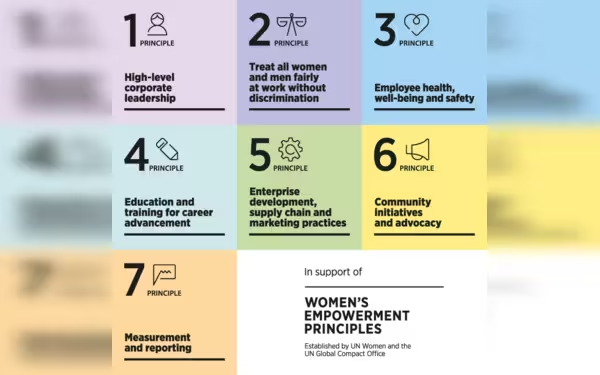Sunday, July 7, 2024 11:46 AM
Empowering Working Women for Gender Equality
- Work-Family Conflict impacts women striving for economic independence
- Challenges faced by working women in Pakistan due to societal biases
- Importance of men sharing household and childcare responsibilities for gender equality
 Image Credits: Watch & Jewellery Initiative 2030
Image Credits: Watch & Jewellery Initiative 2030The article discusses the impact of Work-Family Conflict on working women, challenges faced in Pakistan, and the importance of promoting gender equality by sharing household responsibilities.
As human civilization progresses, the subjugation of women, as noted by Bertrand Russell, becomes more pronounced, often reinforced by moral beliefs. This oppression extends beyond traditional roles, impacting women striving for economic independence, leading to Work-Family Conflict (WFC) or Family-Work Conflict (FWC). Coined in 1985, WFC involves conflicting demands between work and family responsibilities, posing challenges for women balancing these roles.
WFC and FWC affect individuals of all ages and genders, with women bearing a disproportionate burden due to cultural biases assigning them primary domestic and childcare duties. Studies indicate that women experience negative consequences in work performance, family relationships, and physical and mental health due to this conflict.
In Pakistan, working women face discouragement, harassment, and limited legal protection in professional settings. Challenges include inadequate childcare facilities, restricted healthcare services, and societal perceptions labeling educated and working mothers as neglectful. The lack of support from male counterparts further compounds these challenges.
To address these issues, society must ensure equal opportunities for women in the workforce. Men should recognize the importance of sharing household and childcare responsibilities to strengthen familial bonds. By promoting gender equality and empowering working women, society can move towards a more just and equitable future.
Advocating for cultural rights over biases, working women should voice their needs to garner support and challenge unjust practices. Through debates and discourse, the cause of gender equality can progress, fostering a more inclusive society that values women's contributions in all aspects of life.
Understanding and addressing Work-Family Conflict and promoting gender equality are crucial steps towards creating a fairer society. By supporting working women, sharing responsibilities, and advocating for cultural rights, we can build a more inclusive and supportive community for all.













